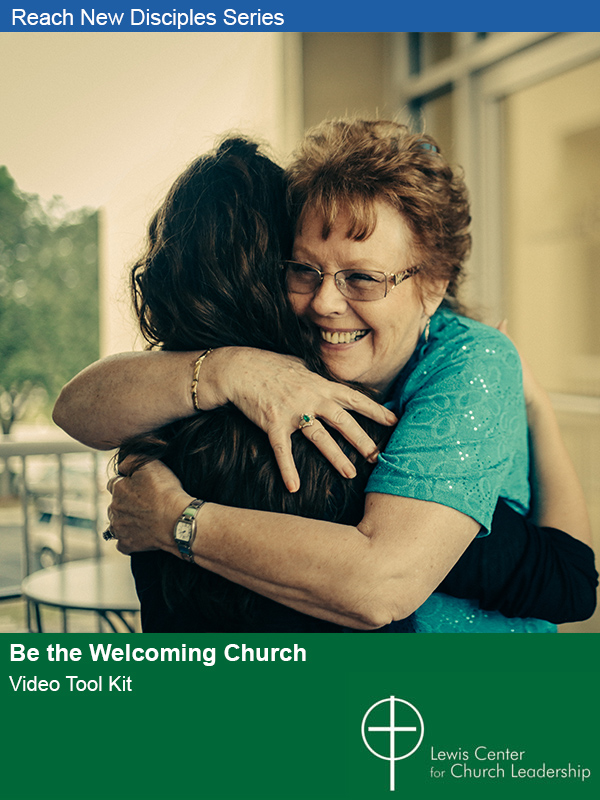Olu Brown says churches that livestream their worship need to be intentional about making online attendees feel welcome by showing love through hospitality. He outlines five ways to connect more effectively with those who worship remotely.
More and more churches across the country are using online worship to reach people beyond their current circle of influence and are seeing new people click the video link and join the online stream. There are so many people who are not connected to the local church and will make a leap of faith if they can access the sacred space without stepping through the doors.
As you develop your online worship platform, the same in-person worship hospitality protocol applies to online worship. Here are the keys to great online worship hospitality.
1. Strong internet signal
There is nothing more frustrating than listening to your favorite song in worship when suddenly the screen freezes or — when hearing about an opportunity to serve — the signal goes out before you receive all the information for volunteering. This frustrates the church’s online worship team and — what is more important — your online viewers. If it continues to happen, the likelihood of high online attendance will plateau and decline. We started Impact Church in a public school where we did not have access to the school’s high-speed internet system. We had to creatively weave together a solution until we had our own building, which had better internet connectivity. Although you may have to fake it till you make it, do all you can to have a strong internet signal if you offer online worship.
2. Opportunity to engage the audience
When people are watching online, it is important to acknowledge and engage them. This can best happen through worship song leaders and people who lead worship as worship facilitators or liturgists. It is important for worship leaders to say, “We welcome our online audience or congregation. Although you may not be able to stand, join with us in worship in your own way.” Maybe the worship facilitator/liturgist says, “Thank you for joining us for worship in person and online today. Please know your presence is important.” Sometimes when we are leading or directing worship with an online audience, we forget that the world is watching. We need to be intentional about making online attendees feel welcome by showing love through hospitality.
3. Communion, baptism, and membership
Communion, baptism, and new membership services are special times in the life of the church. These are times of celebration for regular attendees and first-time attendees. When you offer online worship, invite the online community to share in these special experiences. For example, during communion, you may ask the online viewers, “As you take communion symbolically …” If it is not against your church’s doctrine, you may invite online viewers to prepare their own communion elements and partake along with the congregation.
During baptisms and when accepting new members, invite online attendees around the world to join in the celebration with the family and friends of those are being baptized or who are becoming members of the church. Often family members aren’t able to travel to be with their loved ones for these special occasions. As you lead these services in your local church, remember the online family members. Acknowledge them and invite them to share in these special moments by extending their hands toward the screens or praying a prayer in unison with the in-person attendees. Make sure that the online attendees can see text or special readings; this is vital for their full participation.
4. Online host volunteers
Online hosts are critical to the success of an online worship experience if the intention is to grow attendance and discipleship and eventually become an online campus. In time, churches realize it isn’t enough to have the right verbiage and internet connectivity. In addition, an online facilitator or host is needed to engage the online community throughout the experience and answer their questions. In the for-profit world, this is called “customer service.” In the church world, it is called “attendee hospitality.” This type of hospitality makes all the difference in whether an in-person or online attendee has a positive experience or a negative experience.
To set your mind at ease, this is not a must-have to initiate an online worship experience or to achieve success. But it is a great addition that can, in most cases, be led by volunteers. The purpose of the online host is to monitor the online questions and communications and to support the online attendees. For example, an online attendee may send a screen message to the online host to say the audio on the online feed is distorted. The online host can then inform the church’s audio team who can adjust the sound immediately. Hospitality has been offered. The online attendee will feel valued.
5. Contextual and relevant illustrations and examples
One of the final considerations is how to use contextual and relevant illustrations and examples during online worship. In most cases, these are low hanging fruit that can be easily added or corrected. If, while preaching a sermon, I mentioned a local retail chain as an example, it would be contextual to my community, but it would not be relevant to the global community watching online. We may say, “Welcome to our worship experience. Please stand and offer warm hospitality to the person in your row through a small hug and greeting.” This is great for me if I am present at worship, but what if I am at home and watching worship on my tablet?
These are just a few examples. There are many examples we could give for all areas and roles in worship. The fundamental lesson is to more aware of all people who are sharing with us so we can make sure they feel connected.
This article is excerpted from 4D Impact: Smash Barriers Like a Smart Church (Abingdon Press, 2019) by Olu Brown. Used by permission. The book is available at Cokesbury and Amazon.
Related Resources
- Be the Welcoming Church Video Tool Kit
- “Dream Big to Reach New People,” a Leading Ideas Talks podcast episode featuring Olu Brown
- Online Church is Your New Front Door by Carey Nieuwhof







